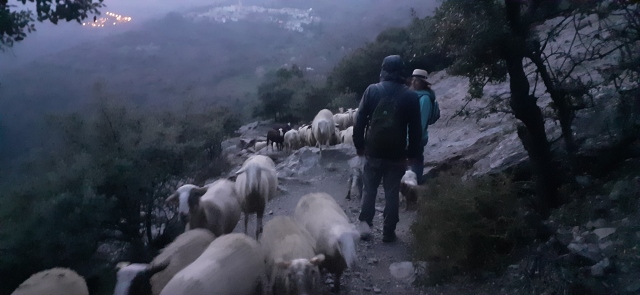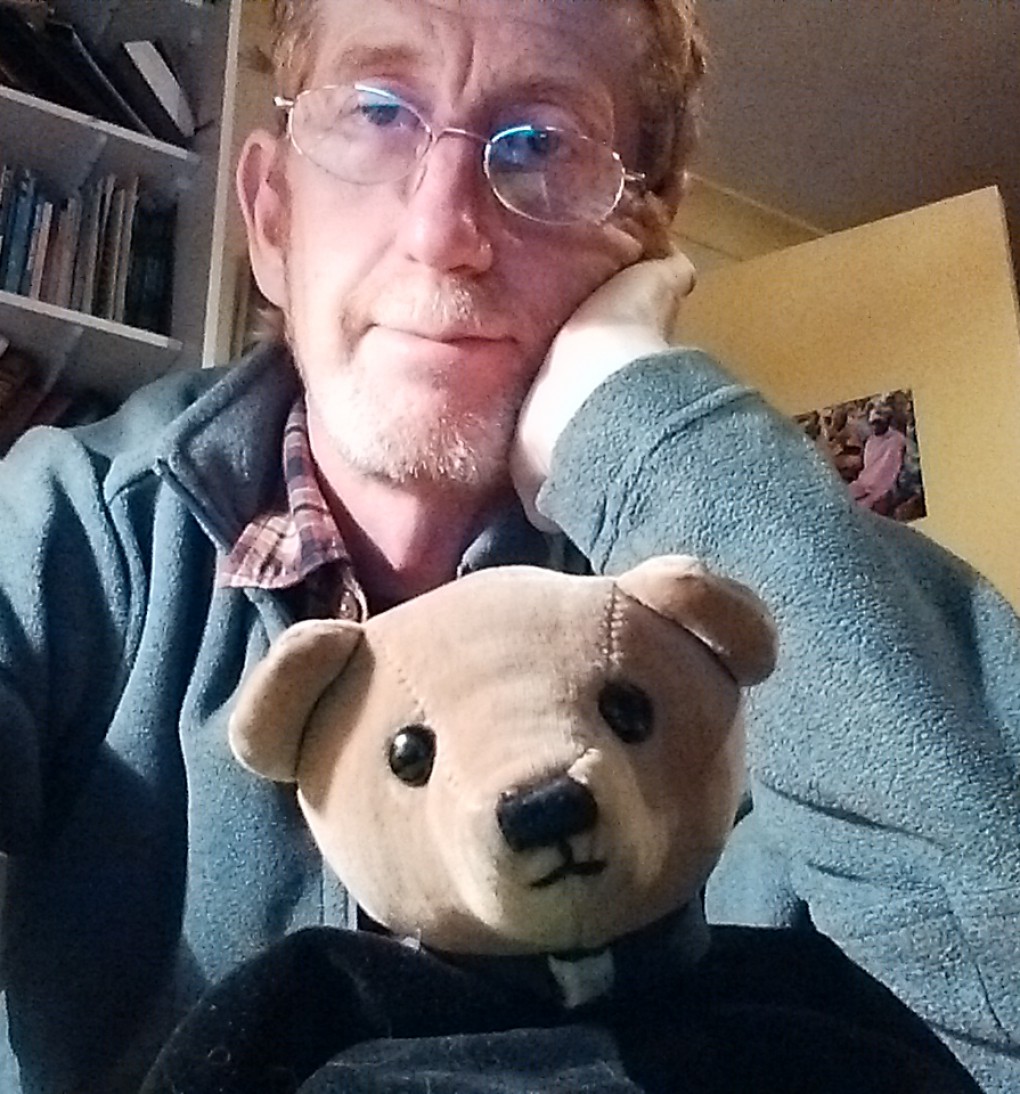![]()
This is the text of my sermon during the Mass live streamed from St Aldhelm’s, Branksome, on Sunday 3rd May 2020. The readings for this fourth Sunday of the Easter season reflect the theme of ‘Christ the Good Shepherd’: Acts 2, 42-47; Psalm 23; John 10, 1-10

The image of Jesus as the good shepherd is very familiar but deserves a little unpacking. My initial reaction is that I’m not sure I want to be likened to a sheep. I’m very fond of them. I and my family raised a great many orphan lambs during my previous life as a country vicar. I have known them each by name, played with them, nursed them through sickness, buried them when as happens they drop dead for no known reason – and of course I’ve enjoyed eating my fair share of them. But if I was a sheep I would resent being tagged, and corralled in a field and manoeuvred by a dog. And I would certainly object to being sent to the butchers and returned as joints for the freezer and then the vicar’s dining table.
In response to my qualms, a bit of agricultural context will take us some little way towards a better appreciation of the Good Shepherd theme. In our climate zone we are used to seeing sheep pastured in fields or more extensively on the fells of the uplands. If you travel to Spain or Palestine or any Mediterranean country, though, you see a different context. There, you can see, and hear by the jingling bells of the older animals, flocks of sheep, often mixed with goats, that roam fairly freely through olive groves or wild and unfenced landscapes in the remote countryside or amid the outer industrial estates of towns. There the sheep are free to roam and yet are always in touch with their shepherd who will be watching or dozing (or as like or not these days texting or live streaming) nearby and letting them know by a call or whistle when it’s time to move on. The sheep are unconfined and free but yet if they know what’s good for them they will choose not to roam too far from their shepherd, or as many other languages would say, their pastor.
In such an environment the sheep are not usually herded by the dogs, whose main role was once to fend off predators and which these days provide the shepherd with company – and some amusement by barking and snarling at passing walkers. Instead the sheep follow and the good shepherd is one who knows all his or her sheep by name and puts their welfare and safety above his or her own comfort and convenience.

There is another bit of – Biblical – background that may deepen our understanding of the good shepherd theme.
Sheep feature a lot in the scriptures and not only because they were an agricultural staple. There was that time when Abraham felt compelled to offer his son Isaac as a sacrifice to God when, at the last, his hand is stayed by the sheep caught in a nearby thicket. Isaac, his beloved, is spared to become the father of our faith and the sheep is killed in his stead. You will also recall the lambs we reasonably enough imagine the shepherds bringing to the stable at Jesus’ birth. And we might remember too the options available to Mary and Joseph when they presented their baby in thanksgiving to God in the Temple: they could sacrifice either a lamb or (the poorer families’ and therefore their choice) two young pigeons. Then at the last, at his crucifixion, we see Jesus killed at the time of Passover when all around lambs were killed to remember the blood of sheep that marked and protected the portals of the Israelite people from the avenging death of God’s angel.
Thus, Jesus is both the Good Shepherd but also the sacrificial Lamb of God, the beloved Son whose heavenly Father does not stay his hand, and all for love of you and me.
Jesus, the Good shepherd, and the sacrificial Lamb of God. And ourselves, the flock in his care, the sinners on whose behalf the lamb is killed.
To anyone among you who is lost and alone (even when that is in plain sight, still smiling and keeping company – the worst kind of loneliness); to anyone who is lost in grief, or anxiety; to anyone who is isolated and whose cries go unheard; to anyone who is lost amid compulsions and addictions that they are powerless to overcome; to anyone whose guilt, or shame, or resentment, or envy remains gnawing at the soul like a cancer; and to anyone whose illness separates them from friends and lovers and even the most caring of nurses can only smile from behind a protective mask and touch you through plastic gloves. I believe that for each one of you and for me there is a call to be heard, amid the wild place in which we are lost, a call distant perhaps but persistent and coming towards us, a call carried on the breeze or amid the storm – and yes, we did hear correctly though so faintly, the voice is calling our name. Even amid the valley of the shadow of death, there his hand will lead me and bring me home.
So the Church, this flock, this community of humans who have all human faults and failings and then some, is in simple truth the gathering shelter for those who have been lost and are found. If we can remember and hold on to and own both of those ascriptions we find that the church is also the most remarkable vehicle of love and redemption and hope for the world of which we are part. Just consider the church as Luke describes it in this morning’s first reading, where they shared their needs and their surpluses. A community of prayer and of thanksgiving and of generous and life giving fellowship. Such is our calling, but only if we remember that we are always the lost, and always the found, can we hope to be such a community of hope and helpfulness for those around us.
We can be such a community, not because we have resolved all our problems, raised all the money, repaired and re-ordered all the buildings, re-structured all our committees and re-energised all our communications and re-thought goodness knows what else (and probably for good measure, replaced the vicar…) It’s not a renewed makeover that we need. Instead we simply need to remember Christ the Good Shepherd, and the sacrificial Lamb of God, who lays down his life for the sheep. We need to remember as we do each time we break bread in remembrance of him. We need to remember as we do each time we pray for one another. We need to remember as we do on each occasion we confess our faults, or forgive our enemies, or feed the poor, or visit the sick, or care for the downcast, or laugh or cry with others as they need and deserve us to. Then our church can truly and visibly be through us what it truly and actually if less clearly is despite us: a community of those who are lost and are found and are following our Lord who is both the Good Shepherd and the Lamb of God.
O Lamb of God, you take away the sins of the world, have mercy upon us…

